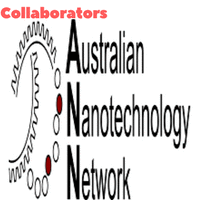
Chun Xia Zhao
The University of Queensland, Australia
Title: Platform technologies for accelerating the translation of nanomedicine
Biography
Biography: Chun Xia Zhao
Abstract
Cancer remains a leading cause of death worldwide. Approximately 8.2 million people died from cancer in 2012, and new cancer diagnoses are expected to increase from 14 million in 2012 to 22 million within the next two decades. Multifunctional nanoparticles hold tremendous promise for cancer diagnosis and treatment, by incorporating targeting, stimuli-responsive release and imaging functions to achieve targeted delivery, controlled release and real-time diagnosis. They have attracted significant interest and undergone an explosive growth over the last decade. However, the majority of nanoparticles have not reached the clinic due to two main barriers: (1) more functionality requires more synthetic steps, resulting in not only difficulty in reproducibly synthesising nanoparticles having consistent properties, but also low yields and high production cost and high probability of failure during synthesis; (2) high complexity means more convoluted behaviour and effects in vivo, difficulties in understanding interactions between nanoparticles and biological systems. To address these fundamental issues, my lab has been focusing on the development of facile one-step or one-pot approaches for producing multifunctional nanoparticles for targeted drug delivery. A combinatorial multifunctional liposomes and polymeric nanoparticles have been fabricated with well controlled properties including particle sizes, zeta potential, targeting ligand density, etc., using a robust and reproducible one-step method. Their biological functions were systematically investigated to screen the optimal formulation having the best tumor specificity using in vitro 2D monolayer cell culture and 3D tumor spheroids model in comparison with in vivo experiments. On the other hand, we have also developed in vivo mimicking chips to speed up the evaluation of the library of nanoparticles.

